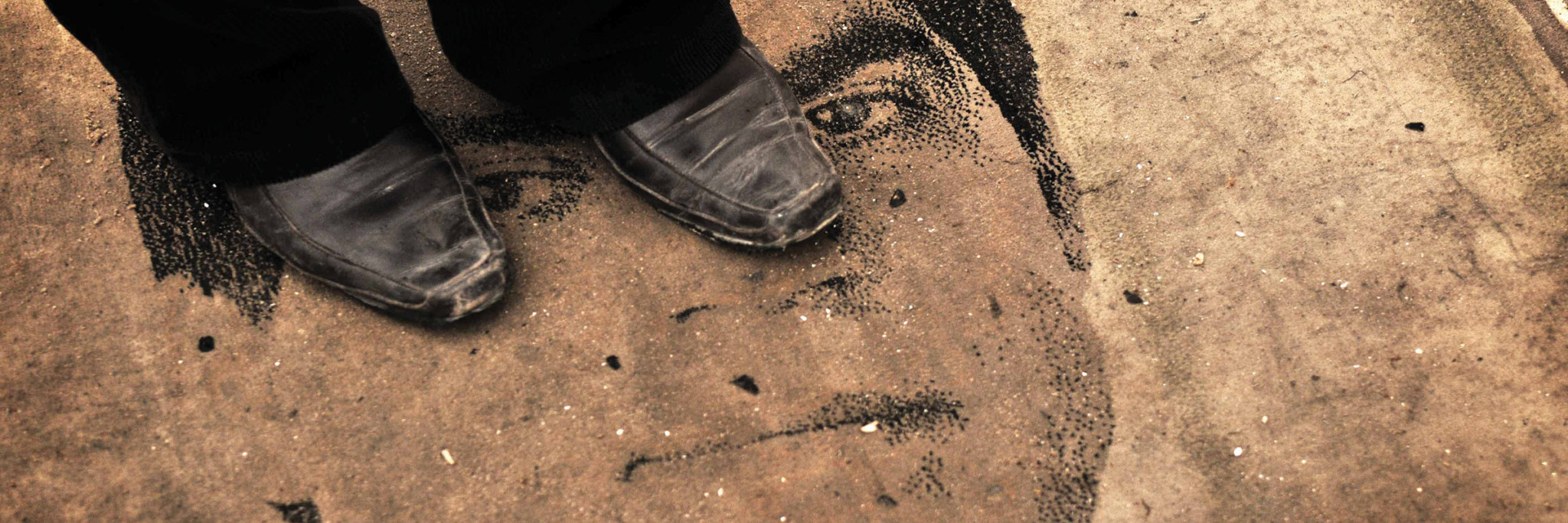Before his country’s revolution in January 2011, economics professor Fadhel Kaboub didn’t talk Tunisian politics. He couldn’t, really. Even while living in Ohio, being associated with anything that could be construed as even remotely negative towards Tunisia’s ruling party meant risking harm to his family and friends still in the country.
Born in Saudi Arabia, Kaboub moved with his family to Tunisia in 1986 when he was nine. A year later, longtime military officer Zine El Abidine Ben Ali took over as president in a bloodless coup and began dismantling the opposition party via exile, jail, and assassination. Kaboub remembers a day when the military came into his neighborhood in the wake of scattered riots, parking a tank in front of his house. He watched as two men in a small army jeep grabbed a high school student, beat him, and took him away. “It was the kind of thing that every Tunisian has seen. It teaches them not to mess with the government.”
The culture of fear was ubiquitous. There were undercover government spies planted throughout Kaboub’s college campus, keeping tabs on the students and faculty. Professors in his economics courses wouldn’t even cover the Tunisian economy for fear of retribution. One of his close friends during college simply disappeared, an occurrence Kaboub describes as common in universities, viewed by the government as hotbeds of potential revolutionaries. Even after he began graduate school in the U.S., he would still find secret police planted next to him on airplanes out of Tunisia, their identity betrayed by their continued attempts to bait him into conversations about his Tunisian politics. Sometimes the government was more straightforward. His frequent travel among Tunisia, the U.S., Australia, and France for economics conferences during his graduate studies led government officials to visit his parents’ home to inquire about their son’s travel. To Kaboub, the message was clear: We’re watching you.
It was the staggering scope of Tunisia’s police state that helped turn its uprising into the first domino in a series of Arab revolutions, says Kaboub. (The Tunisian police-to-citizen ratio was 1:40; the U.S. ratio, by comparison, is 1:500.) When Ben Ali finally fled the country on January 14 after more than three weeks of mass protests, it was a message of hope. “I think there was a real sense that if it can happen in the strongest police state in the world, it can happen anywhere.”
Kaboub began seeing signs of hope for a new democratic Tunisia almost as soon as Ben Ali fled. In addition to removing members of the ruling party from government, the private sector also began taking nonviolent steps to remove the party faithful from its ranks. Workers at a major insurance company walked to the office of their CEO—a longtime political ally of the ruling party—and simply escorted him out of the building. Journalists kicked out their government-appointed editors and began to report the news without constraint. “The revolution did not stop at the president and his government,” says Kaboub.
This kind of dramatic rebuild isn’t the solution to Tunisia’s financial woes, though. “When you are coming out of a situation like this, the wrong thing to do is to eliminate everything that exists and start from scratch.” Instead, Kaboub says the country needs to refocus on its core industries, like tourism—a sector that has suffered during the turmoil—and technology. “Innovation was suppressed under the old government,” says Kaboub. “Anything that spread openness and connected people to each other wasn’t allowed. So now there is a lot of room for developing new internet businesses.” He suggests there is also a need for a greater policy shift towards a New Deal-type of economic policy and away from the purist free-market approach of Ben Ali. “They must recognize that there is a role for the government to play in the country’s economic development, as opposed to leaving it all to free-market initiatives.”
With the first post-revolution election tentatively slated for October 23, Tunisians have been forced to work quickly to build new political institutions to fill the vacuum left by the elimination of the country’s lone political party. As of early June, there were already more than 70 new political parties ready to compete in the elections, and at least one new political think tank. But there is still so much to do. Democracy, Kaboub says, will not happen overnight. It will be a long, labor-intensive process requiring all the hallmarks of a free and democratic society: a vigilant press, civic engagement, and—finally, gloriously—freedom of speech.

